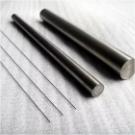Ever wonder why nurses ask about your “metal souvenirs” before certain scans? That question about clips, plates, or pins hiding inside you isn’t just small talk. It’s a vital safety check with real-world consequences. Think about it like this: your body might hold secrets even you’ve forgotten about.
(Do You Have Any Metal Clips, Plates Or Pins In Your Body? Quizlet)
Medical scans, especially powerful ones like MRIs, use incredibly strong magnets. These magnets are amazing tools for seeing inside us. But they have one big rule: no loose metal nearby. Metal objects near an MRI machine can turn into dangerous projectiles. They can fly towards the magnet at high speed. This isn’t a movie scene; it’s a serious risk. Even a tiny forgotten clip could cause harm. The magnet could also heat up metal inside you, leading to burns. So, that question is the first line of defense. It helps keep you safe during the scan.
It’s not just about MRIs either. Airport security relies heavily on metal detectors. Metal implants will likely trigger the alarm. Knowing about them beforehand helps security staff understand the alert. It makes the process smoother for everyone. Certain medical procedures, like some types of surgery or specific therapies, also need a full picture of what’s inside you. Metal can interfere with equipment or techniques.
But what exactly counts? The list is longer than you might think. Common items include artificial joints like hip or knee replacements. Metal plates and screws used to mend broken bones definitely qualify. Pins holding bones together fall into this category too. Even some types of surgical clips, used to seal off blood vessels after an operation, are made of metal. Don’t forget cardiac devices like pacemakers or defibrillators; they contain metal and electronics highly sensitive to magnets. Dental work like crowns, bridges, or implants often involve metal. Old-fashioned metal fillings are usually okay for MRIs, but it’s still good information to share. Ear implants or certain types of shrapnel from old injuries are also important to mention.
Sometimes people forget. That old surgery from twenty years ago? That tiny pin holding a finger bone together? That piece of metal from an accident decades back? These things matter. It’s easy to overlook them, especially if they haven’t caused any trouble. But in a medical setting, knowing is crucial. It’s always better to mention something than risk a problem. Your doctor or dentist might ask this question during check-ups too. It helps them understand your history and plan safe treatments. They keep this information in your records for future reference.
(Do You Have Any Metal Clips, Plates Or Pins In Your Body? Quizlet)
So, next time someone asks if you have any metal clips, plates, or pins, take it seriously. Think back. Dig into your medical history. It might seem like a small detail. But that small detail ensures your safety during important scans and procedures. It helps medical teams care for you effectively. It keeps airport security checks from becoming stressful ordeals. Knowing what’s inside you protects you. It allows technology to work safely for your benefit. Never hesitate to tell your healthcare providers everything you know. It’s a key part of looking after your health. Better safe than sorry, right? Always double-check with your doctor if you’re unsure about anything inside you.
Inquiry us
if you want to want to know more, please feel free to contact us. (nanotrun@yahoo.com)


